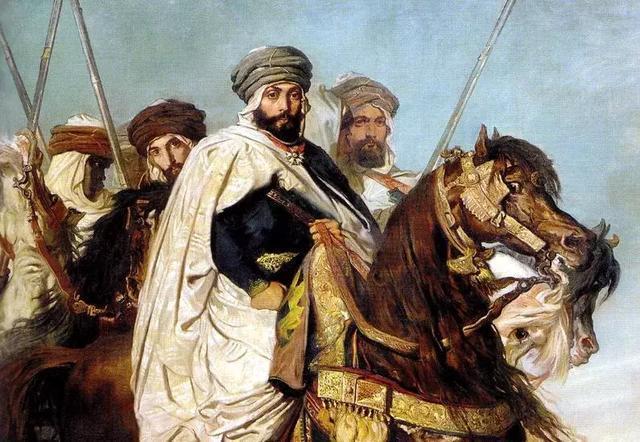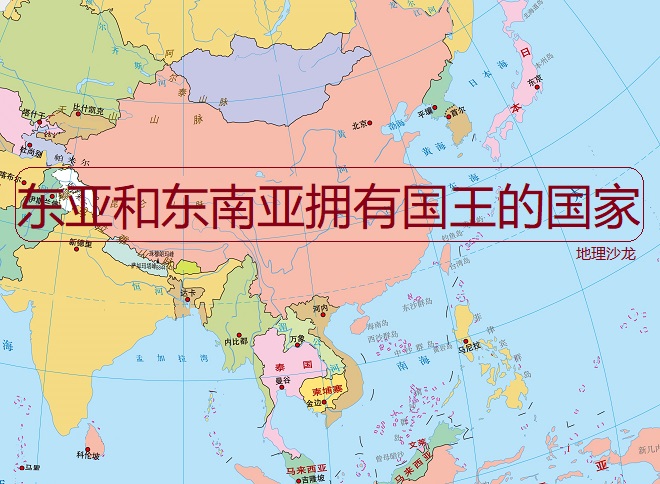Introduction
The Commonwealth of Nations is an intergovernmental organization made up of 54 member countries, 32 of which are classified as small states and a population of around 2.4 billion people. The organization was formed in 1931 and has its roots in the British Empire. Its members are diverse in terms of culture, religion, and political systems.
Member Countries
The Commonwealth of Nations is made up of countries from Africa, Asia, the Americas, Europe, and the Pacific region. The largest member country by population is India with over 1.3 billion people, while the smallest is Nauru with a population of under 10,000. The member countries are:
Australia
Bangladesh
Barbados
Belize
Botswana
Brunei Darussalam
Canada
Cyprus
Dominica
Eswatini (formerly Swaziland)
Fiji
Ghana
Grenada
Guyana
India
Jamaica
Kenya
Kiribati
Lesotho
Malawi
Malaysia
Maldives
Malta
Mauritius
Mozambique
Namibia
Nauru
New Zealand
Nigeria
Pakistan
Papua New Guinea
Rwanda
Saint Kitts and Nevis
Saint Lucia
Saint Vincent and the Grenadines
Samoa
Sierra Leone
Singapore
Solomon Islands
South Africa
Sri Lanka
Tanzania
Tonga
Trinidad and Tobago
Tuvalu
Uganda
United Kingdom
Vanuatu
Zambia
History of the Commonwealth
The origins of the Commonwealth can be traced back to the late 19th century when various self-governing British colonies began to establish closer ties with each other. The first official conference of these colonies took place in 1887, but it was not until 1926 that an Imperial Conference established the principle that all British Dominions were equal in status and could be considered as "autonomous communities within the British Empire."
The first Commonwealth Heads of Government Meeting (CHOGM) took place in 1971 and has since become a regular event. The organization has played an important role in promoting democracy and human rights, as well as tackling issues such as climate change, poverty, and trade.
Commonwealth Institutions
The Commonwealth has a number of institutions that help to promote its values and aims. These include:
The Commonwealth Secretariat, which provides support to member countries and helps to coordinate Commonwealth activities.
The Commonwealth Foundation, which supports civil society groups and promotes participatory governance.
The Commonwealth of Learning, which promotes education and training through distance and online learning.
The Commonwealth Games Federation, which oversees the Commonwealth Games held every four years.
The Commonwealth Parliamentary Association, which promotes parliamentary democracy and provides a forum for parliamentarians from member countries to exchange ideas and experiences.
Challenges and Opportunities
While the Commonwealth has made significant progress in promoting democracy, human rights, and sustainable development, there are still many challenges that it faces. These include:
Climate change
Terrorism
Gender equality
Economic inequality
Political instability
Corruption
Migration
However, the Commonwealth also presents many opportunities for its member countries, including:
Trade and investment
Cultural exchange
Education and training
Research and innovation
Networking and collaboration
Conclusion
The Commonwealth of Nations is a unique and diverse organization that has played an important role in promoting democracy, human rights, and sustainable development. While it faces many challenges, it also presents many opportunities for its member countries to work together and build a brighter future for all.
Introduction
The Commonwealth is an association of sovereign nations, most of which were once under British rule. It was first formed in 1926 and has since grown to become a diverse community of 54 member countries spanning six continents. The Commonwealth promotes values such as democracy, human rights, and the rule of law while also providing a platform for member countries to collaborate on issues of shared interest.
Member Countries
The Commonwealth's member countries are spread across the globe and represent a diverse range of cultures and societies. The largest member country is India, with a population of over 1.3 billion people, while the smallest is Nauru, with a population of just over 10,000. Other member countries include Australia, Canada, New Zealand, South Africa, the United Kingdom, and many smaller island nations in the Caribbean and the Pacific.
Membership Criteria
To become a member of the Commonwealth, a country must meet certain criteria, including a commitment to democracy, the rule of law, and human rights. Members must also recognize the British monarch as the symbolic head of the Commonwealth and be willing to cooperate with other member countries on issues of mutual concern. Some countries, such as Mozambique and Rwanda, have joined the Commonwealth even though they were never part of the British Empire, while others, such as Zimbabwe, have been suspended due to concerns over human rights abuses.
Role of the Commonwealth
The Commonwealth plays a significant role in promoting democracy and human rights throughout its member countries. It provides a platform for member countries to share best practices and promote good governance, as well as offering support to countries that are undergoing political transitions. The Commonwealth also supports development in member countries, with a particular focus on promoting economic growth, reducing poverty, and improving healthcare and education. In addition, the organization is involved in a wide range of issues, including climate change, gender equality, and youth empowerment.
Challenges and Controversies
The Commonwealth has faced a number of challenges and controversies in recent years. Some critics argue that the organization is outdated and ineffective, while others have expressed concern about the role of the British monarchy and human rights violations in member countries. Additionally, there have been disagreements among member countries on issues such as LGBT rights and the legality of cannabis. Nevertheless, the Commonwealth remains an important platform for cooperation and collaboration among its member countries, and efforts are being made to address these challenges and build a more effective and inclusive organization.
Conclusion
The Commonwealth is a unique and diverse community of nations that share a history and a commitment to common values. Despite facing challenges and controversies, the organization remains an important force for promoting democracy, human rights, and development throughout the world. As the world becomes increasingly globalized and interconnected, the Commonwealth's role in facilitating cooperation and collaboration among its members is likely to become even more important in the years to come.
Introduction
The Commonwealth of Nations, also known as the Commonwealth, is a voluntary association of 54 independent and equal sovereign states. These states are primarily former colonies of the British Empire and share historical, cultural, and linguistic ties. While the Commonwealth comprises countries from all regions of the world, the majority are in Africa, Asia, and the Caribbean. In this article, we'll take a closer look at the countries that make up the Commonwealth of Nations.
Africa
Almost half of the Commonwealth's member countries are located in Africa. These include Botswana, Cameroon, Ghana, Kenya, Lesotho, Malawi, Mauritius, Mozambique, Namibia, Nigeria, Rwanda, Seychelles, Sierra Leone, South Africa, eSwatini (formerly Swaziland), Tanzania, Uganda, Zambia, and Zimbabwe. This diverse group of countries is united by their shared history of colonialism and their struggle for independence in the middle of the 20th century. Today, they continue to face a variety of challenges, including poverty, political instability, and the weakness of their economies.
Asia
India is the Commonwealth's largest and most populous member in this region, with a population of over 1.3 billion people. It gained independence from British rule in 1947, and since then, it has become a major economic power in the region. Other Asian countries that are members of the Commonwealth include Bangladesh, Brunei Darussalam, Malaysia, Maldives, Pakistan, Singapore, and Sri Lanka. These countries have diverse economies, ranging from the high-tech industries of Singapore to the agricultural richness of Bangladesh. They are also home to a wide range of religions, cultures, and languages.
Caribbean
The Caribbean region includes several small island nations that are members of the Commonwealth, including Antigua and Barbuda, The Bahamas, Barbados, Dominica, Grenada, Jamaica, Saint Kitts and Nevis, Saint Lucia, and Saint Vincent and The Grenadines. Some of these countries, such as Barbados and Jamaica, have a long history of British colonialism. The Caribbean countries are closely linked by their shared geography, economy, and culture. They face common challenges, such as climate change, poverty, and economic inequality.
Europe
The United Kingdom is the largest member of the Commonwealth in Europe. It is also the country that created and led the Commonwealth for much of its history. Other European countries that are members of the Commonwealth include Cyprus and Malta. Both of these countries gained independence from British rule in the middle of the 20th century. They are diverse in terms of geography, economy, and culture, but they are united by their shared history and their commitment to the values of the Commonwealth.
Pacific
The Pacific region includes several small island nations that are members of the Commonwealth, including Fiji, Kiribati, Nauru, Papua New Guinea, Samoa, Solomon Islands, Tonga, Tuvalu, and Vanuatu. These countries are scattered across the vast expanse of the Pacific Ocean and are often vulnerable to natural disasters such as cyclones and tsunamis. The economies of these countries are often dependent on agriculture, fishing, and tourism. They face common challenges such as climate change, poverty, and economic development.
Conclusion
The Commonwealth of Nations is a unique organization that brings together a diverse group of countries with a shared history and a commitment to common values. While the organization has faced challenges in recent years, it continues to play an important role in promoting economic development, democracy, and human rights around the world. As the countries of the Commonwealth continue to face new challenges in the 21st century, the organization will play a critical role in helping them to address these challenges and build a better future for their citizens.




暂无评论
发表评论